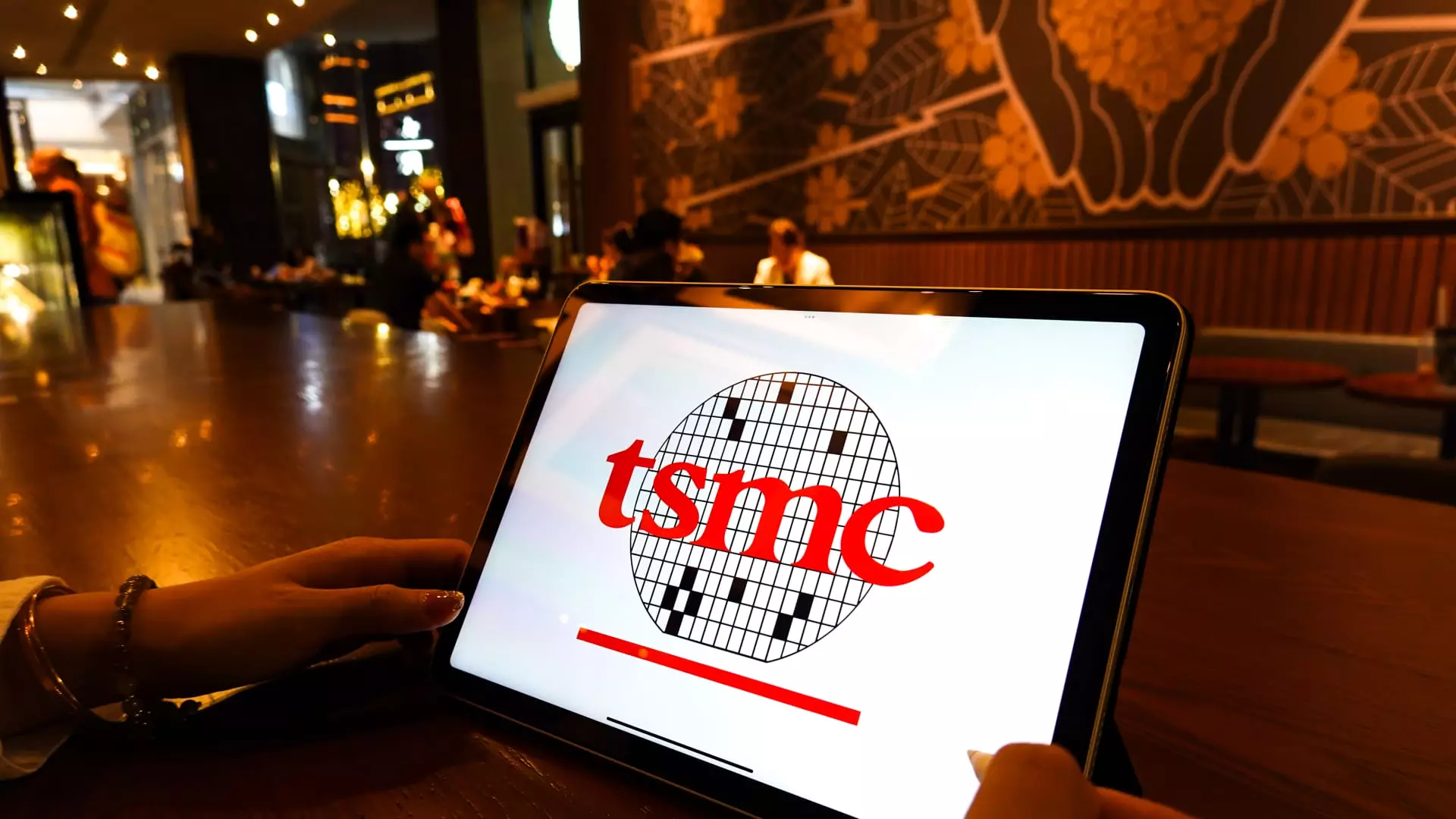The Taiwan Semiconductor Manufacturing Company (TSMC), a pivotal player in the global semiconductor industry, recently unveiled remarkable financial results for the third quarter of the year. With a staggering 54% increase in net profit, amounting to 325.3 billion Taiwanese dollars (approximately $10.1 billion), TSMC has clearly capitalized on the burgeoning demand fueled by artificial intelligence (AI) applications. This robust performance not only exceeded market expectations—estimations suggested a net income of 300.2 billion Taiwanese dollars—but also underscored TSMC’s strategic position as the world’s foremost manufacturer of advanced chips.
TSMC’s net revenue for the quarter hit an impressive $23.5 billion, reflecting a 36% year-over-year growth and contributing to a gross margin improvement to 57.8%, up from 54.3% in the same quarter last year. These metrics highlight not just the company’s operational efficiency but also its competitive allure in a landscape increasingly dominated by tech giants like Apple and Nvidia, who rely on TSMC’s cutting-edge technology.
Looking ahead, TSMC’s forecasts remain optimistic as it anticipates fourth-quarter revenues to range between $26.1 billion and $26.9 billion—a sequential increase of 13% and an astonishing 35% year-over-year growth. Chief Financial Officer Wendell Huang articulated a bullish outlook during an earnings call, emphasizing TSMC’s robust positioning as a leader in the semiconductor landscape, specifically in 3nm and 5nm technologies.
This noteworthy performance is underpinned by a significant uptick in both smartphone demand and AI-related applications. TSMC’s CEO, C.C. Wei, painted a vibrant picture of AI’s role in driving not just sales but also innovation within the tech ecosystem, stating that the company enjoys an unprecedented level of collaboration with AI innovators. His affirmation that AI demand is “real” perhaps reflects an industry-wide confidence and highlights an increasingly symbiotic relationship between semiconductor manufacturers and AI development.
TSMC’s ambitions are not limited to enhancing profit margins; they also involve substantial capital investments. The company projects its capital expenditure will exceed $30 billion this year, with Q3 capex estimated at $6.4 billion. This financial commitment signals TSMC’s intent to fortify its manufacturing capabilities not just in Taiwan but globally. Recent initiatives include a massive $65 billion investment in three chip plants located in Arizona, signaling the company’s response to burgeoning U.S. demand for semiconductors amid ongoing geopolitical tensions.
In addition to its American investments, TSMC also inched into the Japanese market with the establishment of its first factory this year. These overseas expansions illustrate a strategic effort to mitigate regional risks, optimize supply chains, and cater to different market demands effectively.
While TSMC’s results are undoubtedly stellar, the broader semiconductor market remains fraught with challenges and unpredictability. The very week TSMC reported its earnings, ASML—a key supplier to TSMC—issued a disappointing sales forecast, raising concerns over the sustainability of the semiconductor boom spurred by AI. This juxtaposition raises pivotal questions regarding the economic viability and saturation of the AI-driven market.
Interestingly, some industry leaders express caution, emphasizing a slower-than-expected trajectory towards AI maturity. Young Liu, CEO of Foxconn, a critical Apple supplier, suggested that while AI technologies are advancing, they will require additional time to reach fruition. This statement reflects a growing sentiment that, despite the current exuberance, the euphoria surrounding AI applications may see more tempered growth moving forward.
In a landscape where technological innovation intersects with significant investment and market speculation, TSMC has emerged as a beacon of growth and resilience. Its third-quarter earnings are a testament to its strategic responsiveness to the demands of a rapidly evolving market, particularly influenced by AI developments. However, as the excitement mounts around AI applications and chip manufacturing advances, industry players must bristle against overzealous optimism to navigate any potential downturn effectively. As TSMC charts its course into a promising future, balances of investment, innovation, and market sustainability will remain crucial in determining its long-term success.

Leave a Reply